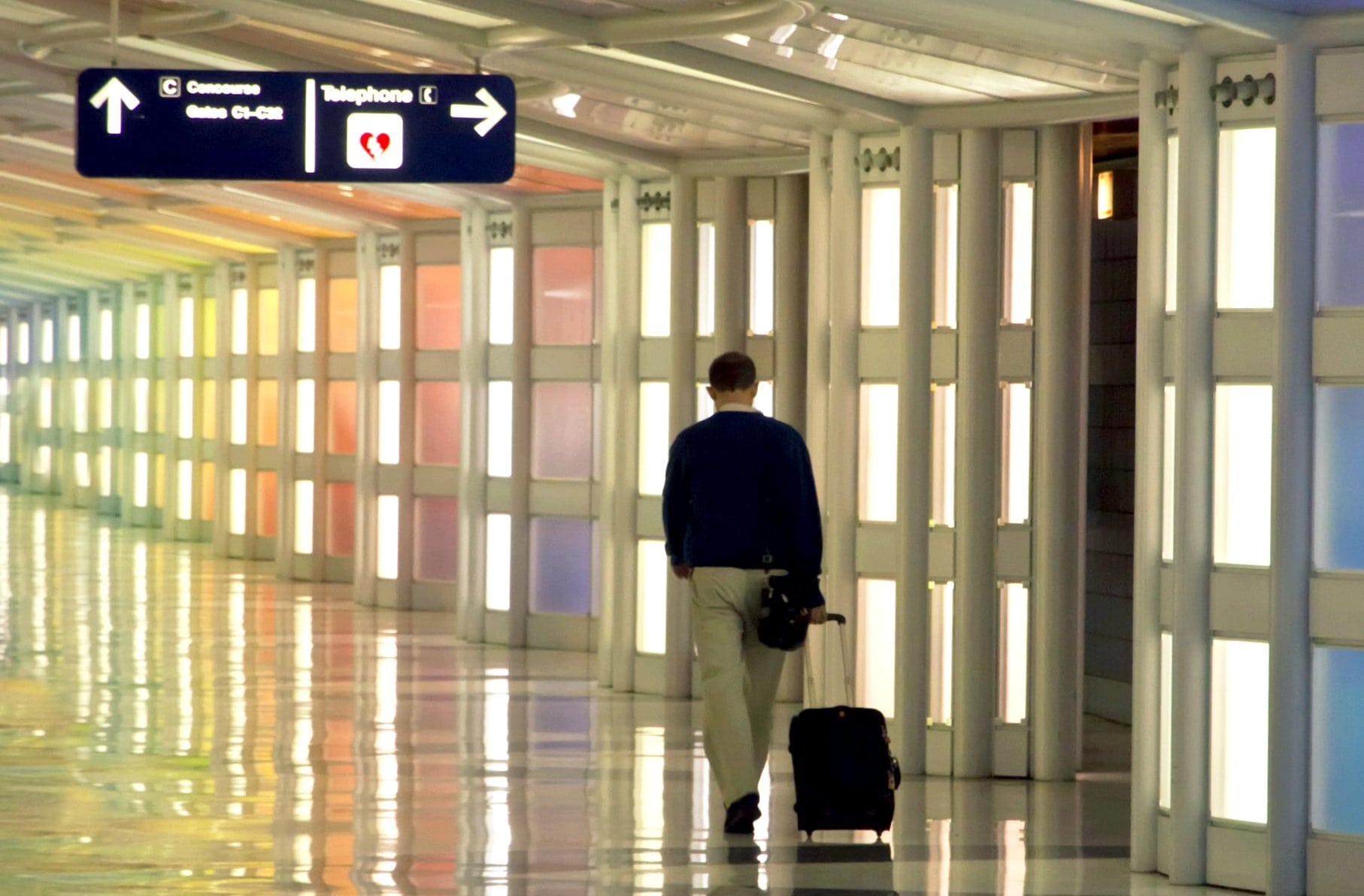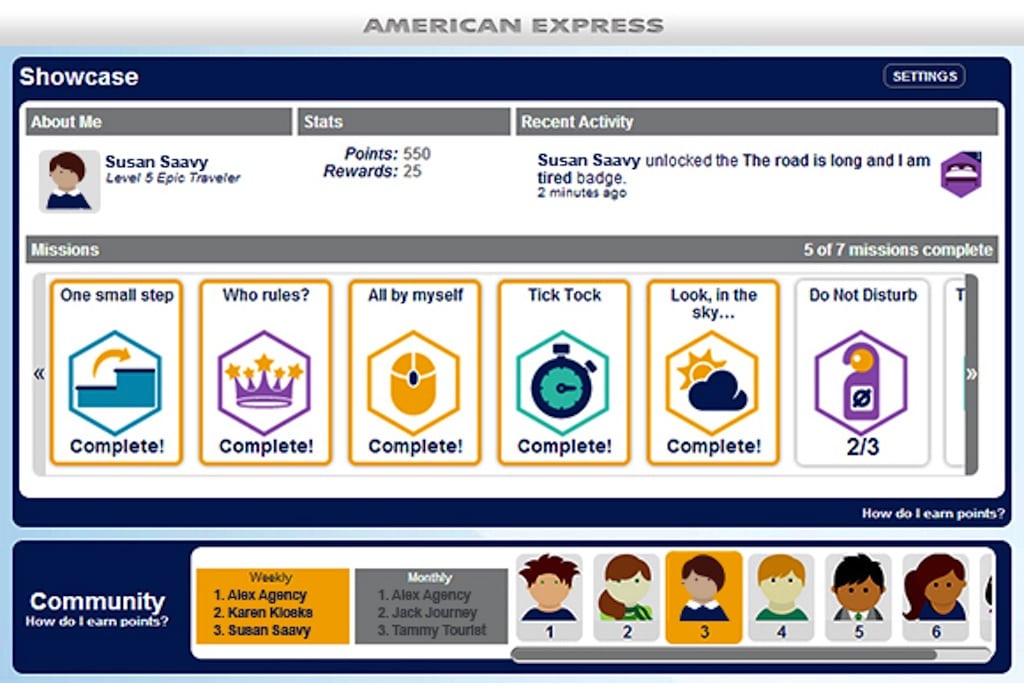Skift Take
American Express, other mega travel agencies and their corporate clients aren't going to be able to put the genie back in the bottle with badges and leader boards. There is a lot of turf-protection going on here.
The current crisis in business travel has a lot of parallels to the late 1990s when travelers began to defect from the practice of visiting or phoning their local travel agencies in favor of booking their trips online.
Corporate travel agencies such as American Express Global Business Travel and Carlson Wagonlit Travel, and the major corporations they service, are faced with the prospect that droves of their Gen-X and Gen-Y employees are ignoring their mandates to use the prescribed corporate booking tool to book a negotiated rate at Marriott or an American Airlines flight, for example.
Instead, these rogue bookers-gone wild want to stay at a Sheraton or W closer to their meeting, fly JetBlue, and they feel compelled to book unauthorized brands so the travelers can wrack up their Starwood Preferred Guest or True Blue points and miles instead.
The Ship is Leaking
Consider then the position of Alicia Tillman, vice president of marketing and business services for American Express Global Business Travel, who is charged with stemming the tide and plugging what the industry not-so creatively calls “leakage.”
“We have an obligation to solve that,” Tillman says, in an interview with Skift.
Tillman concedes that this huge challenge to compliance with corporate travel policies is only going to get “worse.”
So Tillman and American Express have come up with what they hope will be the beginnings of a solution: Gamification.
American Express has partnered with Badgeville to use its gamification solution, and just began a pilot with Citrix, a mobile-solutions company, to see if Citrix’s techie employees can be enticed with badges, leader boards, and perhaps some perks like hotel upgrades and free nights, to stick with prescribed corporate travel policies.
With young employees these days used to booking on mobile and websites scattered across the Internet, Tillman is thus fighting that trend and road warriors’ desire to stick with their favored loyalty programs, using badges, mayorships, leader boards and some upgrades.
Based on the demographics of the employees, Tillman argues that gamification is more likely to work in some industries than others.
Carlson Wagonlit Travel, too, has its own gamification initiative.
To be fair, Tillman admits the pilot with Citrix, which is scheduled to run 30-45 days, is only a first baby step, and Amex will study over the next few months ways to entice engagement with its clients’ travelers across numerous platforms.
“We are going to start here, but we are going to spend the next few months exploring where there are other opportunities,” Tillman says.
Too Little, Too Late?
But, with lots of travelers and early adopters already having tired of badges, mayorships and check-ins in social media outlets such as FourSquare, isn’t American Express trying to make workable an idea that’s already lost its luster?
Tillman counters that gamification has never been tried in business travel, and American Express is willing to experiment to see it if can help with travel-policy disruptions.
The trend of rogue bookers in business travel was an underlying theme throughout the just-completed GBTA conference in San Diego.
Concur’s Open Booking initiative, which is in its very early days, attacks some of the same problems that gamification addresses, albeit in a more comprehensive way.
Clap, Clap to San Diego
Philip Wolf, the former PhoCusWright chairman, was moderating one of the big sessions at GBTA, and he asked attendees how many supported Open Booking, how many were on the fence, and how many oppose it.
The opponents generated the loudest applause, although the other two categories were well-represented.
Asked what American Express has against Open Booking, Tillman said the development and infrastructure changes it would require would be cost-prohibitive.
Tillman cited the extensive investments that American Express, other travel management companies, and the global distribution systems have ploughed into the current business travel ecosystem.
Tillman didn’t say this, but mega travel agencies are essentially constrained by those investments, and aren’t about to abandon them for what they consider might be the flavor du jour.
Consider the analogy that it was easier for HotelTonight, starting from scratch, to create a mobile-only hotel app than it was for a much older Hotels.com to mimic it.
Let’s be frank: Much of the travel management establishment opposes Open Booking, and any real move toward capturing these rogue bookings on a widespread basis would take years.
After well over a third of the GBTA attendees indicated with their applause that they oppose Open Booking, Wolf likened that response to a conference he attended years ago when he told the audience at that time that one day the majority of travel would be booked online.
The audience at that earlier conference, Wolf recalled, scoffed at the notion.
The Daily Newsletter
Our daily coverage of the global travel industry. Written by editors and analysts from across Skift’s brands.
Have a confidential tip for Skift? Get in touch

